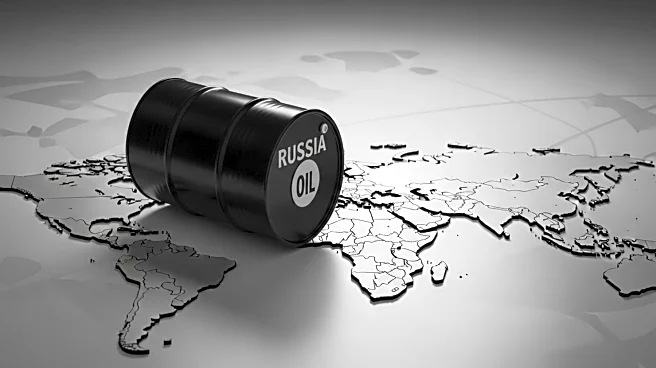What is the story about?
What's Happening?
India's Finance Minister Nirmala Sitharaman has announced that India will persist in purchasing Russian oil, defying President Trump's demands to cease these transactions. Despite the U.S. imposing 50% tariffs on Indian goods in retaliation, India remains the largest buyer of Russian seaborne crude, benefiting from discounted prices. This decision is driven by economic considerations, as the discounted oil helps India manage its import costs. The Trump administration has expressed dissatisfaction with India's stance, emphasizing the geopolitical implications of India's continued engagement with Russia.
Why It's Important?
India's decision to continue buying Russian oil underscores the complex interplay between economic interests and geopolitical pressures. The move highlights India's prioritization of economic stability over diplomatic alignment with the U.S. The increased tariffs could impact India's export economy, potentially slowing GDP growth. This situation reflects broader global tensions, as countries navigate their relationships with major powers amidst shifting alliances. The decision also illustrates the challenges faced by the U.S. in exerting influence over international trade practices.
What's Next?
India may seek strategies to mitigate the impact of U.S. tariffs, potentially through diplomatic negotiations or economic adjustments. The situation could lead to further strain in U.S.-India relations, prompting discussions on trade and foreign policy. Additionally, India's continued oil purchases may influence its diplomatic ties with Russia and China, affecting regional dynamics. Monitoring the economic repercussions and diplomatic engagements will be crucial in understanding the evolving landscape.
















